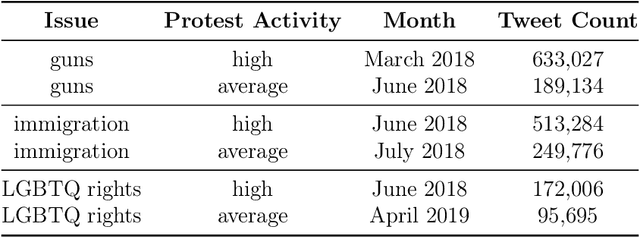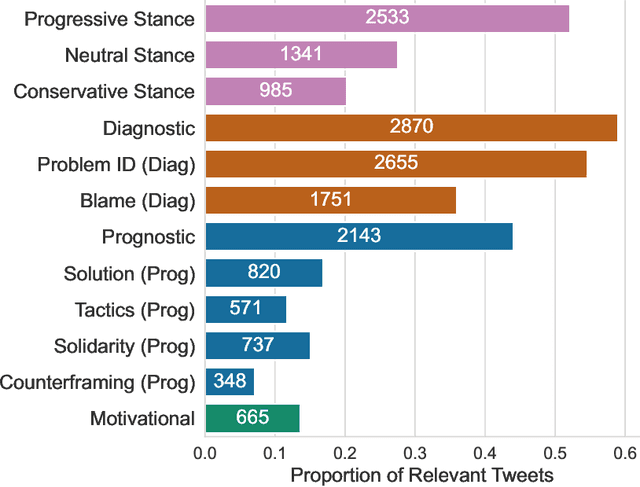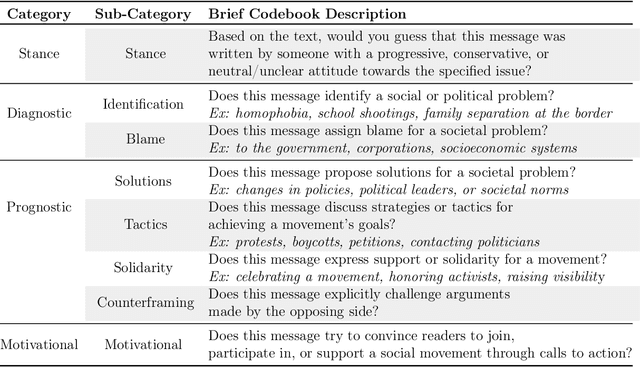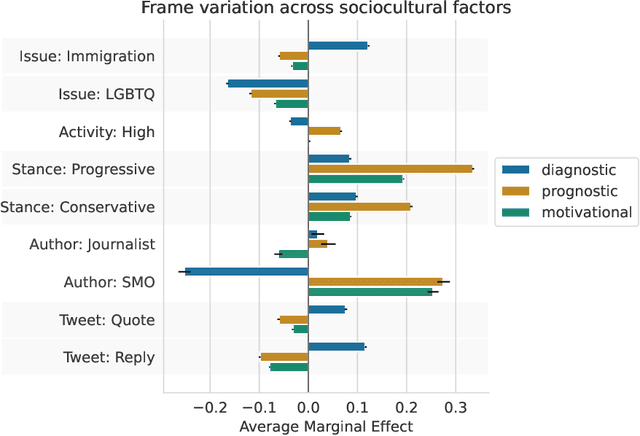Framing Social Movements on Social Media: Unpacking Diagnostic, Prognostic, and Motivational Strategies
Paper and Code
Jun 19, 2024



Social media enables activists to directly communicate with the public and provides a space for movement leaders, participants, bystanders, and opponents to collectively construct and contest narratives. Focusing on Twitter messages from social movements surrounding three issues in 2018-2019 (guns, immigration, and LGBTQ rights), we create a codebook, annotated dataset, and computational models to detect diagnostic (problem identification and attribution), prognostic (proposed solutions and tactics), and motivational (calls to action) framing strategies. We conduct an in-depth unsupervised linguistic analysis of each framing strategy, and uncover cross-movement similarities in associations between framing and linguistic features such as pronouns and deontic modal verbs. Finally, we compare framing strategies across issues and other social, cultural, and interactional contexts. For example, we show that diagnostic framing is more common in replies than original broadcast posts, and that social movement organizations focus much more on prognostic and motivational framing than journalists and ordinary citizens.
 Add to Chrome
Add to Chrome Add to Firefox
Add to Firefox Add to Edge
Add to Edge